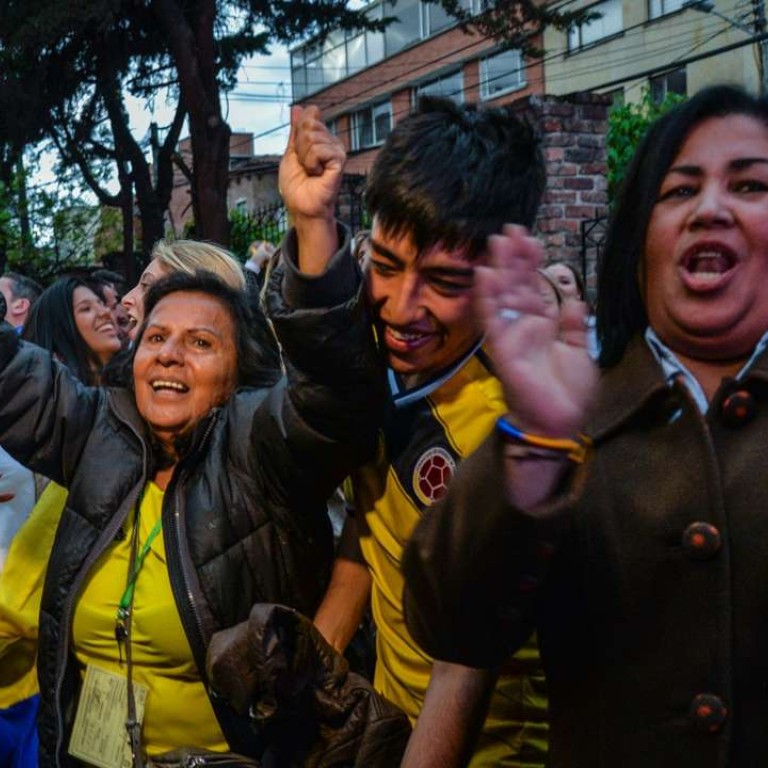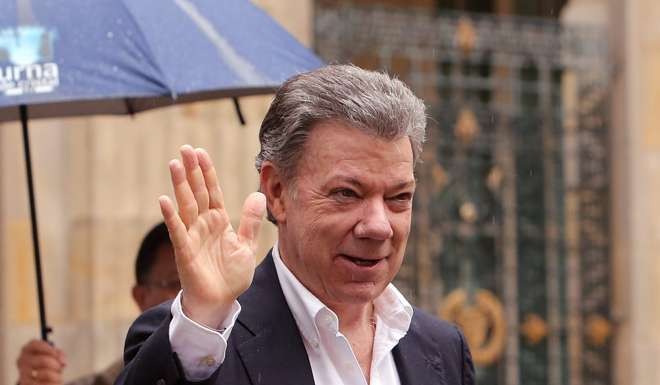
Colombia’s Brexit moment? Voters reject deal with FARC rebels, derailing government’s attempts to end 52-year civil war
Authorities estimate the conflict has left 220,000 people dead, 45,000 missing and 8 million displaced
After a stunning referendum defeat for a peace deal with leftist rebels, Colombians are asking what comes next for their war-torn country, which like Britain following the Brexit vote has no Plan B to save an accord that sought to bring an end to a half century of hostilities.
The damage from Sunday’s vote is still sinking in. Instead of winning by an almost two-to-one margin as pre-election polls had predicted, those favouring the accord with the Revolutionary Armed Forces of Colombia lost by a razor-thin margin, 49.8 per cent of the votes to 50.2 per cent for those against the deal.
It is absurd to reward those criminals, drug-traffickers and killers who have made the country a disaster
Both President Juan Manuel Santos and leaders of the FARC, having come this far after four years of gruelling negotiations, vowed to push ahead, giving no hint they want to resume a war that has already killed 220,000 people and displaced 8 million.
“I won’t give up. I’ll continue search for peace until the last moment of my mandate,” Santos said in a televised address appealing for calm.
But it’s not clear how the already unpopular Santos can save the deal given the stunning political defeat he suffered. For now, he has ordered his negotiators to return to Cuba on Monday to confer with FARC’s top leaders, who watched the results come in with disbelief after earlier ordering drinks and cigars at Club Havana.
“The FARC deeply regret that the destructive power of those who sow hatred and revenge have influenced the Colombian people’s opinion,” the FARC’s top commander, a guerrilla known as Timochenko, told reporters later.
Supporters of the accord had expected it to effectively end what is seen as the last major armed conflict in the Western hemisphere. Opinion surveys by pollsters Datexco and Ipsos Napoleon Franco, published on September 26, indicated the ‘Yes“ vote would win by a margin of around 20 per cent.
Opponents of the deal resented the concessions made to the FARC, which has carried out killings, kidnappings and extortion.
“Peace is exciting, but the Havana accords are disappointing,” said the leader of the ‘No’ campaign, former president Alvaro Uribe.

Sunday’s result threw the country’s future into uncertainty.
“Colombia is betting everything on this plebiscite, socially, economically and politically,” said Jorge Restrepo, director of conflict analysis centre CERAC, ahead of the results.
Santos insisted as he voted on Sunday: “Peace is the way for our children and grandchildren to have a better country. We Colombians must all play a role in this historic change.”
Many voters said they were sick of war, but others said the accord was a reward to a group they see as terrorists.
“It is absurd to reward those criminals, drug-traffickers and killers who have made the country a disaster for the past 50 years,” said Jose Gomez, a retiree of 70, who voted ‘No’. “If you reward crime, what moral authority do you have to tell a thief not to steal your mobile phone?”
The opinion polls had forecast a ‘No’ vote of only about 35 per cent.
The deal signed on October 26 by Santos and FARC leader Rodrigo Londono, known as “Timochenko,” called for the 5,765 FARC rebels to disarm in six months and convert into a political group with seats in Colombia’s Congress. The accord covered justice and compensation and an end to the cocaine production that has fueled the conflict.

It offered an amnesty for some FARC members but not for the worst crimes such as massacres, torture and rape.
The FARC promised in a statement on Saturday that it would provide “material compensation for victims”. They have apologised to their victims and held emotional face-to-face reconciliations over recent days.
The accord was meant to virtually end the conflict, even though the government has so far failed to start peace talks with a smaller leftist rebel group, the National Liberation Army (ELN), which it accuses of holding hostages.
The FARC launched its guerrilla war on the government in 1964, after a peasant uprising that was crushed by the army. The ideological and territorial conflict drew in several leftist rebel groups, right-wing paramilitaries and drug gangs.
Additional reporting by Associated Press

.png?itok=arIb17P0)